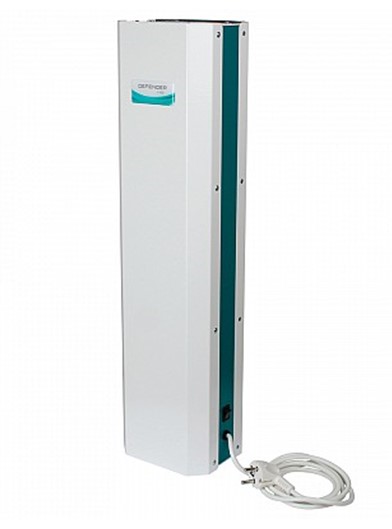APEC - Why the Asia-Pacific Cooperation Was Created

Content:
- What is APEC
- History of the creation of the Asia-Pacific Economic Cooperation
- APEC Members
- Coordination of APEC activities
- APEC and RUSSIA
- APEC Goals and Objectives
- Major APEC summits
- Further development of the APEC union
What is APEC
APEC is a platform for cooperation between countries in the Asia-Pacific region, formed in 1989 and uniting 21 economies. it stands for Asia-Pacific Economic Cooperation (APEC). It does not have a charter or the status of an international organization, but is one of the leading forums for promoting trade cooperation in the region.
Unlike other informal associations - the G7 and G20 - APEC has a permanent secretariat, which is based in Singapore. The chairmanship changes annually. In 2024 , APEC will be chaired by Peru for the third time in the history of the association, and in 2025, the chairmanship will pass to SOUTH KOREA. In 2023, the forum's events were hosted by the United States .
History of the creation of the Asia-Pacific Economic Cooperation
The creation of the forum is a merit of Australia. In early 1989, the idea of organizing such a platform was proposed by the then Prime Minister of the country Bob Hawke, and by the end of the year, representatives of 12 countries gathered in Canberra, where they agreed to launch this mechanism. The following year, APEC countries reached a consensus with another regional forum, ASEAN, defining the parameters of participation in APEC for the countries of this bloc and delimiting powers between them so that the two platforms do not interfere with each other's work.
For the first five years, the current and periodically added APEC members met at the level of specialized ministers; since 1993, at the initiative of US President Bill Clinton, the practice of annual high-level summits has been established. The summit did not take place only in 2019, when the Chilean authorities cancelled the event amid social protests that broke out in the country. The following year, at the height of the covid-19 pandemic , the meeting, originally planned for Malaysia, was held online for the first time. The next summit in 2021, which was to be hosted by New Zealand, was also held in a video conference format. APEC leaders held their first face-to-face meeting since 2018 only in November 2022 in Bangkok, immediately after the G20 summit in Bali.
In 2024, the main meeting will be held in the Peruvian capital Lima on November 13–15. In addition, more than 160 APEC events are scheduled to take place in five cities in the country from late 2023 through 2024.
APEC Members
Twelve countries participated in the establishment of the forum: Australia , Brunei Darussalam, Indonesia, CANADA , Malaysia, New Zealand, the Republic of Korea , Singapore, the United States, Thailand, the Philippines and Japan .
Two years later, in 1991, CHINA joined the union, including Hong Kong and Taiwan. Two years later, Mexico and Papua New Guinea joined, and in 1994, Chile joined APEC.
In 1998, Vietnam , Peru and Russia expanded the membership of the association, as a result, the APEC map covers 21 countries. In the same year, a moratorium on the entry of new participants into the union was adopted, only the creation of urgent special groups is possible. Nevertheless, some countries and territories still submitted requests for entry. These are Guatemala, India, Cambodia, Colombia, Costa Rica, Macau, Mongolia, Pakistan, Panama, Sri Lanka and Ecuador.
Due to the participation of the special administrative region of China - Hong Kong and partially recognized Taiwan (officially - Chinese Taipei), the organization cannot have international status, therefore, at the forum meetings, state symbols are not used, and the participants of the association call themselves "economies".
Coordination of APEC activities
The platform is guided by a Business Advisory Council, which includes working groups on regional integration, sustainable development, finance and economics, small and medium-sized enterprises and inclusion, and a digital working group.
APEC's activities are also divided between four expert committees: on trade and investment, on economics, the administrative and budgetary committee, and the subcommittee on economic cooperation and development (ECOTECH). Depending on the area, they include several more specialized working groups.
Between summits, ministerial meetings, meetings of special representatives of APEC participants, and meetings of special officials are held.
The chairmanship of the forum is transferred annually at the initiative of representatives of a country, which undertakes to hold several dozen events of various levels on its territory. Also, for the period of leadership of the forum, the selected economy is given the opportunity to determine the priorities in the work of the association for the year.
The secretariat in Singapore is responsible for organizing and monitoring the work of all departments, led by the executive DIRECTOR. Since 2019, this position has been held by Rebecca Fatima Santa Maria, a representative of Malaysia.
APEC and Russia
Since joining the forum, Russia has hosted the summit and other events only once, in 2012 in Vladivostok.
But both before and after, Russian representatives proposed their own initiatives and events, such as:
- the creation of the APEC Business Club in the fall of 1998, which brought together representatives of business circles interested in cooperation with the countries of the region;
- holding a meeting of the business advisory council with approximately 100 representatives of the Asia-Pacific region business elite in Moscow in 2001;
- proposals for counter-terrorism protection of critical energy infrastructure (approved at the Sydney summit in 2007);
- proposals to improve cooperation mechanisms between emergency response agencies (supported at the Lima summit in 2008).
At Russia’s initiative, the APEC Special Group on Emergency Preparedness and the APEC Dialogue on Non-Ferrous Metals were created in 2005, which was transformed into a special group in 2008.
Funding for the forum's projects is voluntary. Russia has contributed $3 million to the association's general fund since its creation in 2005, with a total of approximately $30 million, and $1.8 million to the human security sub-fund.
APEC Goals and Objectives Goals
The main and unchanging goal of APEC is comprehensive sustainable economic growth in the region and deepening integration processes.
In the fifth year of the forum’s existence, APEC leaders adopted the so-called Bogor Goals at a meeting in Bogor, Indonesia, which are now considered largely achieved. They called for liberalizing trade and investment and creating an open and free regional economy by 2020. So, in 2020, they were replaced by the Putrajaya Development Guidelines, which call for the creation of an open, resilient and peaceful Asia-Pacific community by 2040.
TasksThe objectives of the forum include:
- organizing free and open trade and investment;
- encouraging and accelerating economic integration of countries in the region;
- development of economic and technical cooperation between the members of the association;
- improving human security and creating a favorable and sustainable business environment.
Major APEC summits
In general, each of the three dozen APEC summits can be considered important, since all of them made decisions that were essential for the development of the organization.
The first summit was held on November 19–20, 1993 in Seattle (usa). Its participants specified the basic directions of the forum’s work: development of an open multilateral trading system, growth of the region’s residents’ well-being, support of education, science and communications, and environmental protection.
At the second summit on November 15, 1994, in Bogor, the so-called Bogor Development Goals were adopted.
The fifth summit in Vancouver, Canada in 1997 admitted the last members, including Russia, and imposed a moratorium on the expansion of the association.
The ninth meeting of regional economic leaders in October 2001 in Shanghai, China , shortly after the September 11 terrorist attacks in the United States, for the first time put political issues, in particular the fight against terrorism, on the APEC agenda. At the same meeting, participants adopted the “Electronic APEC” strategy, which encourages, in particular, the development of online commerce and the digital economy.
The 13th summit in Busan, Republic of Korea, in November 2005 raised not only the issue of countering terrorism, but also measures to protect regional economies from the effects of natural disasters.
Two years later, in Sydney, Australia, the parties agreed to gradually reduce trade barriers with the ultimate goal of creating a Pacific free trade zone (from Chile and Canada to China and Australia). At the same meeting, a declaration on climate was adopted for the first time.
At the 2011 summit in Honolulu, Hawaii, participants again discussed the issues of green growth and economic integration and agreed to reduce tariffs on environmental goods to a maximum of 5% by 2015. The final list of 54 goods was approved at the next meeting, which took place in September of the following year in Vladivostok.
The 21st summit in Denpasar, Indonesia (Bali) resulted in an agreement to establish an APEC center in Indonesia in the area of public-private partnership.
At the November summit in Lima (Peru) in 2016, the leaders of the association returned to the discussion of trade and economic integration and the creation of a free trade zone in the Asia-Pacific region.
The 26th summit in 2018 in Papua New Guinea was memorable for the fact that for the first time in 25 years it ended without a final declaration due to disagreements between China and the United States.
The 27th Chilean summit did not take place at all.
However, at the next summit in 2020, a document was adopted that defined the development goals of the region for the next 20 years - the Putrajaya Development Goals.
Further development of the APEC union
In 2024, by decision of the chair — Peru — the community will discuss issues of the digital economy and innovation, energy transition, sustainable and inclusive development. Forum participants strive to create conditions for the free exchange of information and technology, the use of innovation and digitalization to move from the informal economic sector, which is typical of developing Asian countries, to the formal economy, which includes the formation of a favorable competitive environment, fair access to markets and technologies. As part of this work, support is organized for start-ups, small and medium-sized enterprises, whose task is to develop demand.
APEC has also focused on environmental protection. Climate change and resource depletion are forcing the forum's economies to adopt environmentally friendly technologies and practices, including initiatives to transition to more sustainable energy sources, to focus more on green finance and to control greenhouse gas emissions.
In addition, the union is working on developing human capital. The member states of the forum understand that investments in education and professional training of personnel have become key factors in achieving economic growth. Therefore, APEC supports the program of academic exchange of experience and knowledge, as well as initiatives to improve the skills of the workforce.
Finally, APEC continues to strengthen ties with other associations and international organizations. For example, cooperation with the World Trade Organization (WTO) and ASEAN allows APEC to more effectively address global issues and promote its initiatives in the international arena. In the future, APEC plans to continue developing this partnership, which will help to deepen the integration process in the Asia-Pacific region.
Read together with it:
- О самых распространенных причинах пожаров рассказали в МЧС2 октября, Минск. О самых распространенных причинах пожаров рассказал начальник главного управления надзора и профилактики МЧС Дмитрий Турчин на "Предупреждение чрезвычайных ситуаций в осенне-зимний период. Профилактика пожаров и гибели людей от них", которая прошла в БЕЛТА. "В республике наблюдается рост количества пожаров на 7,7%, и на 1......




























































